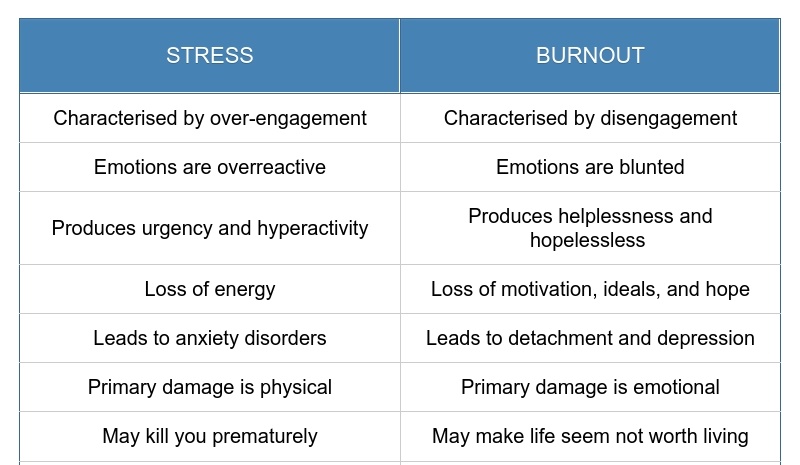
Depression, anxiety and even suicide are on the increase in South Africa. The World Health Organization (WHO) reported in May this year that, globally, 264 million people are suffering from depression, which is one of the leading causes of disability.
Not only does poor employee mental health impact people's personal lives, but also hampers productivity, resulting in smaller profit margins. Companies need to "tap into" workplace wellness now more than ever, says Kemble Morgan, registered pharmacist and entrepreneur.
“I recall a time when anxiety started becoming a buzzword amongst many disgruntled employees…
“A fast-paced lifestyle has now led us to a place where the working world is finally sitting up to take notice of their healthcare needs,” he says.
Workplace wellness programmes: are they necessary?
In the past, some corporate wellness programmes were well intentioned but poorly executed. Today, however, employees are more informed, and psychologically healthy workplaces have become more common.
Figures from workplace health and wellness solutions company Occupational Care South Africa show that absenteeism costs the South African economy between R12 billion and R16 billion each year – with much of it relating to workplace stress, burnout syndrome and employee health.
Source: Stress and Burnout in Ministry (helpguide.org)
“I have noticed during my time in practice that leaders in the workplace get this aspect of their business plan wrong, and I absolutely believe that an employee wellness programme should be just as important as clearly defined targets,” says Morgan.
Read more: Are South Africans too stressed and afraid to take sick leave?
Companies leading by example include:
- Johnson & Johnson: They run a wellness programme that offers individualised assessments that include stress tracking and blood pressure monitoring of its employees – the programme has helped more than half of its participants reduce stress and lose weight.
- Phillips 66: The multinational energy giant hosts long challenges throughout the year, including a stress reduction challenge. If employees achieve their wellness goals and complete preventive screenings, they receive a bonus on their paycheck.
- GetSmarter: This online education company promotes the use of an in-house gym, organises company hikes and stress management workshops, collects data on stress levels among employees, and facilitates full screenings (blood pressure, eyesight etc.), among others.
Deloitte’s 2018 global Human Capital Trends survey indicates that over 50% of respondents viewed employee wellness programmes as “valuable” or “highly valuable”, but notes that there are still gaps between what employees value and what companies are delivering.
Of the South African respondents, 68% felt that the programmes promote employee productivity and improve overall bottom-line results.
What can employers do?
If stress and work burnout can impact the growth and productivity of a business, and disrupt the workforce, causing financial losses, then the need for companies to provide employees with resources to help them attain better health cannot be overstated.
Monique de Villiers, life and business coach at Inner Space told Finweek that, internationally, companies are far ahead of South Africa in terms of employee wellness.
Comprehensive programmes that take into account both practicality and accessibility, centring on physical and mental health are critical for maintaining sustainable levels of employee engagement and motivation, said Dr Leanne Mandim, head of employee health and wellness solutions for Life Employee Health Solutions.
But are employee wellness programmes enough?
It’s great that more and more companies are setting up health and wellness programmes to help employees deal with the stress of today’s fast-paced, high-volume workplace, Dr David Posen, author of Is Work Killing You? A Doctor’s Prescription for Treating Workplace Stress, told Your Workplace. However, Posen added that a critical element companies need to look at is the amount of stress they’re generating in the first place.
“Providing sessions on stress management and work-life balance is commendable, but it’s not enough. Focusing on the prevention of stress is also more humane than waiting until it needs treatment.”
Last year it was reported that South Africans are among the hardest workers in the world. Posen points out that the velocity and volume of work that has resulted in employees working longer hours and feeling more pressure, and having little time for basic health habits like sleep, exercise and nutrition, has increased over the years. The resulting absenteeism, sick leave, staff turnover and burnout end up costing companies a lot of money – and adding employee wellness programmes costs even more.
So no matter how many programmes are introduced by companies, if stressful situations are coming at you faster than you can deal with, says Posen, wellness programmes can't make up for illness and lost productivity. This scenario has to change – and it’s a conversation that needs to take place at the executive level of companies.
Image: iStock




 Publications
Publications
 Partners
Partners











